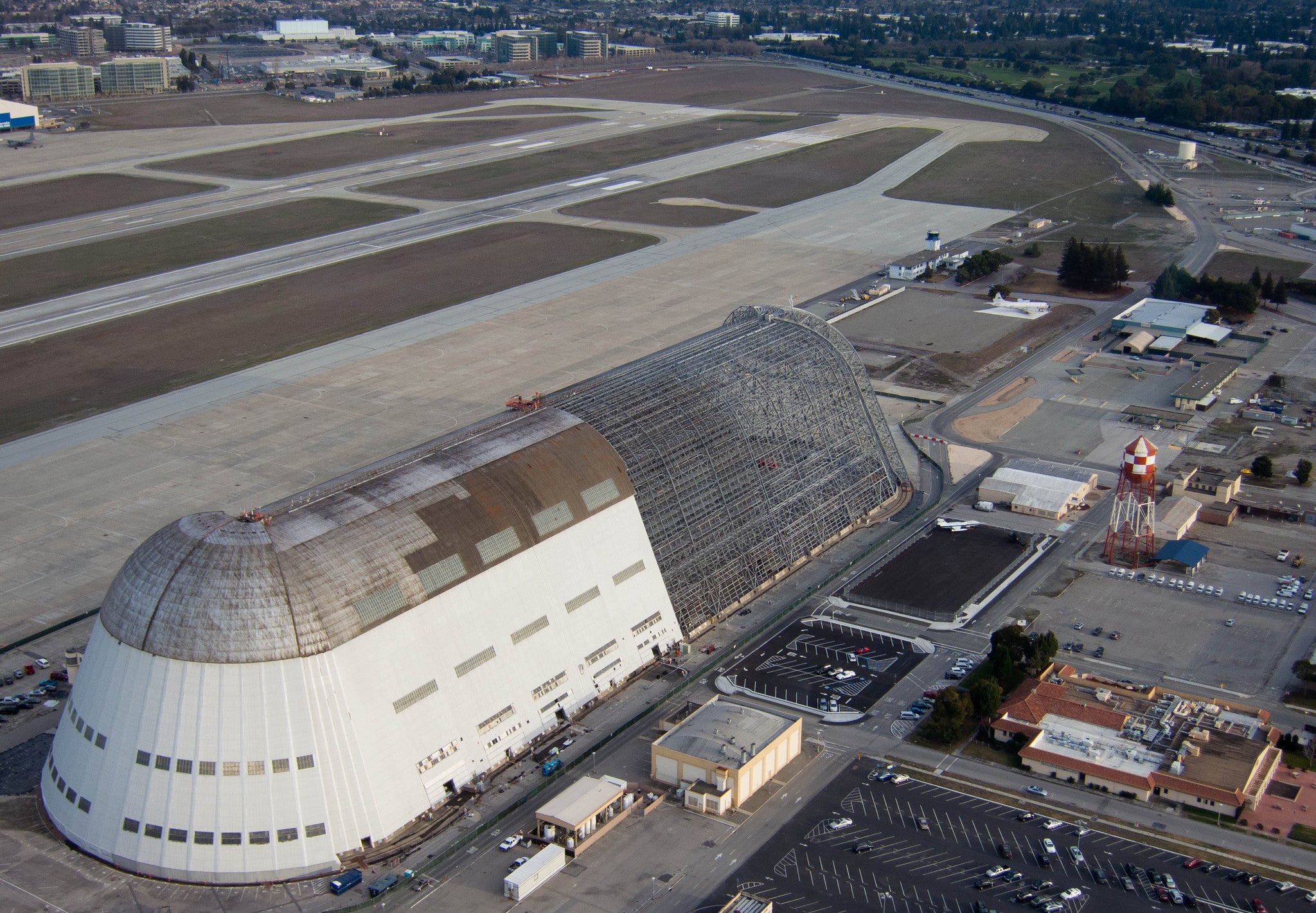Google settles 60-year lease on Nasa airfield to research 'space exploration and robotics'
The tech firm is paying $1.16bn through subsidary company Planetary Ventures in a deal that includes rennovation of the historic buildings

Google has taken out a 60-year lease on a former Nasa airfield as the company continues to expand its research into fields including robotics, drones and space exploration.
The Moffett Airfield is located in Sunnyvale, California and includes three massive hangars, the first of which is one of the world’s largest freestanding structures with a ceiling high enough for fog to form inside.
Google’s founders, Larry Page and Sergey Brin, have had a long-standing agreement with Nasa to use the airfield for their private jets and will now pay the space agency an estimated $1.16 billion for rent with an additional $200m thought to be set aside to renovate on-site facilities.
The deal is an attractive one for both parties, with Nasa able to save some $6.3 million annually in maintenance and operation costs while Google gets near-ready facilities close to home including 1,000 acres of land (and a private golf course).
Nasa said in a statement that following Google’s takeover the airfield and cavernous Hangar One would “again be home to high-tech innovation […] in the areas of space exploration, aviation, rover/robotics and other emerging technologies.”
If Google has any plans to build its own space-bound robots it’s not telling anyone, but the company and its executives are certainly not without their interests in this and related areas.
Google founder Page and executive chairman Eric Schmidt are both key investors in Planetary Resources, an aeronautics company with the long-term goal of asteroid mining, and Google’s Lunar X Prize has been set up to encourage private companies to land rovers on the Moon.
Meanwhile, other tech companies are also funnelling cash into aeronautics ventures, with Facebook exploring the use of solar-powered drones to supply internet to developing countries and Elon Musk’s SpaceX currently running supply missions to the ISS.
Subscribe to Independent Premium to bookmark this article
Want to bookmark your favourite articles and stories to read or reference later? Start your Independent Premium subscription today.

Join our commenting forum
Join thought-provoking conversations, follow other Independent readers and see their replies